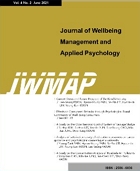 E-ISSN : 2586-6036
E-ISSN : 2586-6036
Assessment of Odor Issues and Technologies in Wonju Traditional Market

Young-Jin SO

Abstract
Purpose: This study investigates the sources and characteristics of odor pollutants, focusing on total volatile organic compounds (TVOCs), hydrogen sulfide, and ammonia in traditional markets. The objective is to assess the impact of these odors on market environments and evaluate the effectiveness of new odor-reducing techniques. Research design, data, and methodology: Conducted in Wonju Traditional Market, the research employed a longitudinal design to analyze odor concentrations over time through continuous monitoring at five strategically established points. Measurements were taken continuously for five minutes at one-minute intervals using the AOMS-1000 odor-measuring equipment. The study also applied a sewage odor-reducing substance spraying device designed to minimize unpleasant odors. Data was collected in the summer of 2022 and again in the summer of 2023, allowing for a comparative analysis of odor levels before and after implementing the odor-reducing technique. Results: Findings revealed significant concentrations of TVOCs, hydrogen sulfide, and ammonia, with a notable reduction in pollutants following the introduction of the odor-reducing device. Conclusions: This study highlights the importance of effective odor management in traditional markets. It recommends the adoption of advanced technologies such as biofilters, electrostatic precipitators, and photocatalytic purification systems to better control odor emissions. Implementing these solutions can significantly enhance the shopping experience for consumers.
- keywords
- Traditional Markets, TVOC, Sewage Systems
- Downloaded
- Viewed
- 0KCI Citations
- 0WOS Citations














